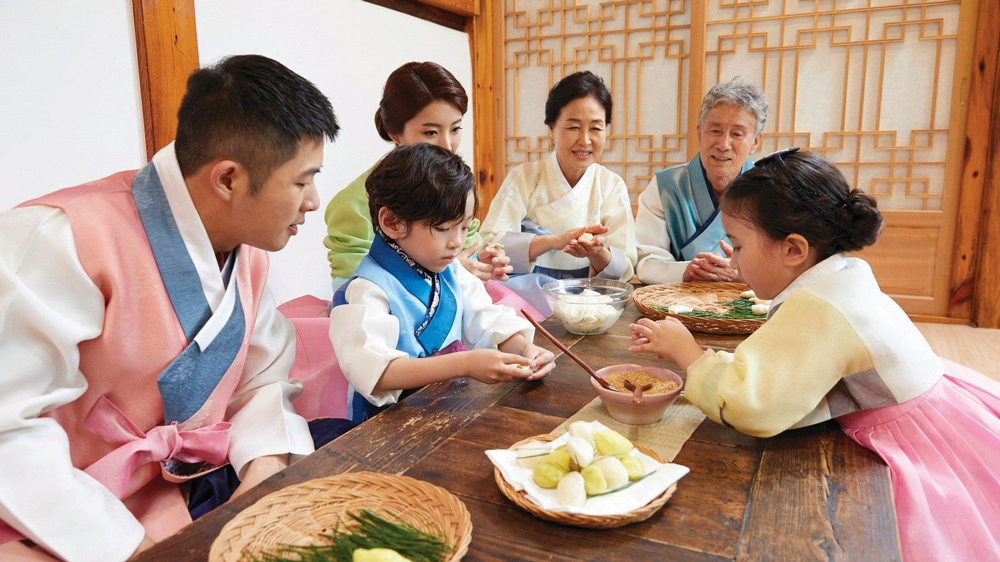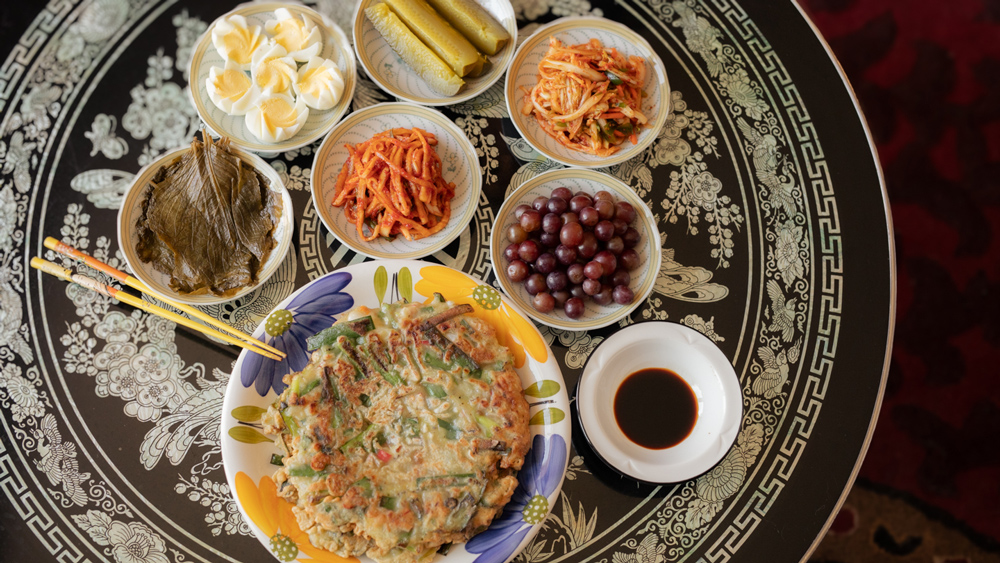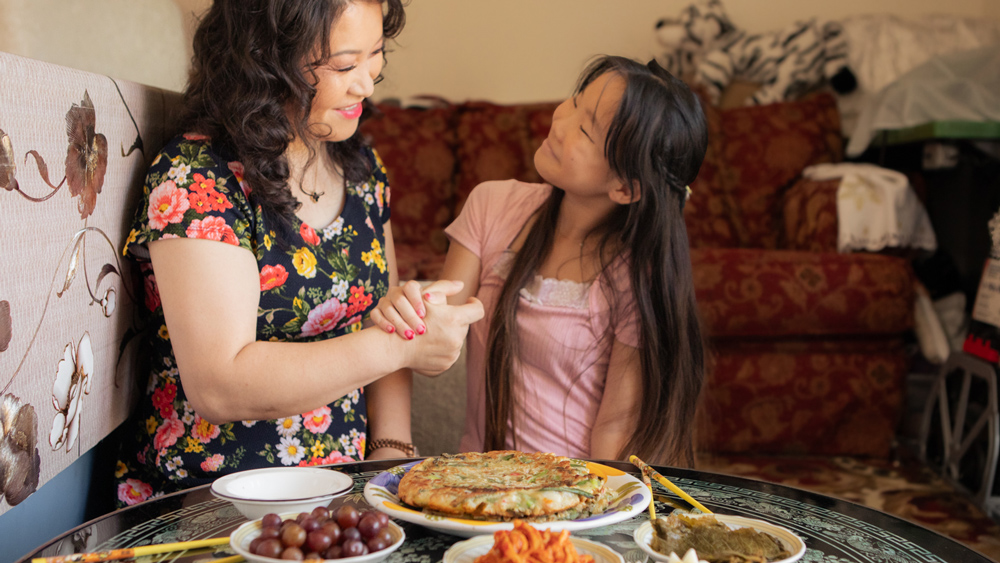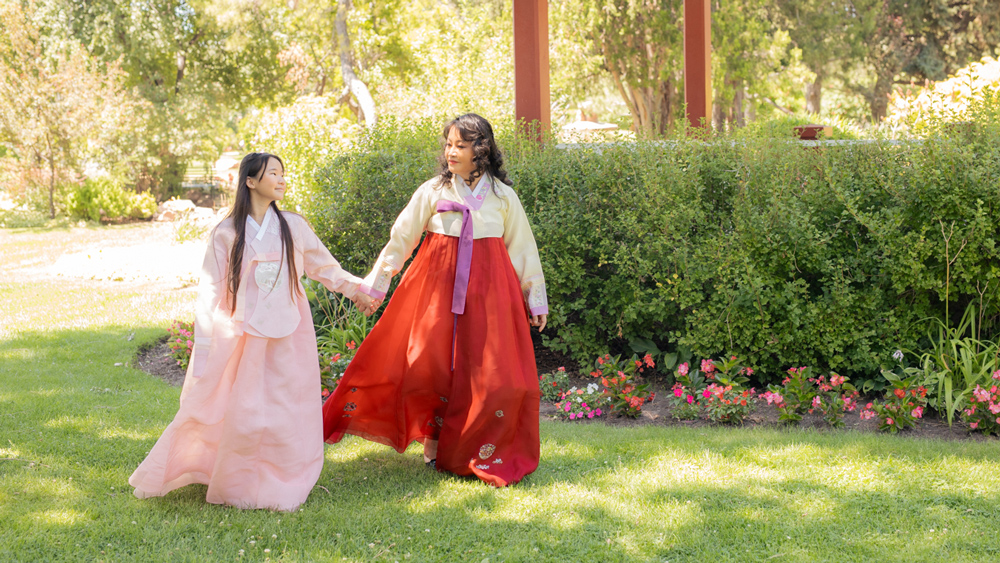Lunar New Year in North Korea | What is Seollal (설날)?
North Korea has several major holidays, the most prominent being centered around the birthdays of Kim Il-Sung and Kim Jong-il. But there are some holidays that predate the regime, and continue to be celebrated in both North Korea and South Korea.
Seollal (설날) is one of these traditionally significant days. Known more broadly as Lunar New Year, it marks the first day of the lunar calendar and is observed in many Asian cultures. While January 1st marks New Year’s Day on the Gregorian calendar used by many western countries, the exact date of Lunar New Year differs every year. It typically falls at the end of January or beginning of February, and is celebrated over a period of three days.

Seollal in South Korea
In South Korea, Seollal is a time for families to gather and honor their ancestors. With people across the nation traveling back home, roads are packed and train, bus, and plane tickets are all booked months in advance.
Long hours are spent preparing traditional foods like tteokguk (떡국), or rice cake soup, and jeon (전), a savory pancake-like dish usually made with green onions. The act of eating tteokguk symbolizes turning one year older in Korean, and is believed to bring good luck and health for the year ahead.
Food is also an important component of Charye (차례), a memorial service to honor one’s ancestors. Led by the family’s eldest son, an assortment of dishes are set out on a table as an expression of gratitude, and rites are performed for the last four generations of one’s ancestors.

Another well known Seollal tradition is Sebae (세배). Younger members of the family, often while wearing traditional hanboks (한복), do a deep bow to their elders with the greeting “새해 복 많이 받으세요,” which translates to “May you receive good fortune and blessings in the new year.” In return, elders share words of wisdom and sebaetdon (세뱃돈), new year’s money in a colorful envelope.
The rest of the holiday is usually spent exchanging stories, reflecting on the past year, and playing Korean traditional games like Yutnori (윷놀이), which involves four wooden sticks that are tossed like dice to move tokens around a board.

Seollal in North Korea
In North Korea, the celebration of Seollal is encouraged by the state to emphasize Korean folk traditions. Historical programs are broadcast on TV, and local authorities organize mandatory activities such as kite flying and spinning tops. North Koreans gather with loved ones over the highly anticipated three day rest from work.
But unlike in South Korea, January 1st is actually considered the more important holiday to celebrate the New Year. This is when North Koreans do Sebae. Instead of the South Korean greeting, it’s customary to say “새해를 축하합니다,” or “Congratulations on the new year.”
On New Year’s morning, it is compulsory for all North Koreans to visit statues or portraits of Kim Il-sung and Kim Jong-il. After that, respects must be paid to town leaders, particularly the person in charge of one’s unit, such as the company president or homeroom teacher. Finally, greetings are exchanged between in-laws and neighbors, and families gather for ancestral rites, sharing food, and other traditional festivities.
Another key difference between New Year’s celebrations in North and South Korea is that there is no widespread travel. The lack of freedom of movement inside the country means it is extremely difficult for North Koreans to go from one city to another for any reason. Any requested travel requires a specific stated purpose, proper identification, and documentation that must go through several levels of approval, including from the head of the neighborhood watch (inminban), local People’s Committee, local district office, and a relevant police officer. Permits for restricted areas, such as Pyongyang and the border regions, require more complex issuing processes.
Yet both New Year’s Day and Seollal in North Korea are still celebrations of life and community. Many North Korean refugees fondly remember the holiday, recalling not the state enforced displays of propaganda, but precious time spent with loved ones.
“I grew up with a lot of aunts and uncles and they all lived in the same area, so on Seollal…everyone would get together to make rice cakes, noodles, and dumplings. After making a lot of food, we’d play Yutnori and everyone would start squabbling. Then we’d find out everyone’s fortune. I miss it now.”
- Hannah, escaped from North Korea in 2015

On Seollal, North Koreans don’t do a separate bow because they have already greeted the New Year. Depending on the region, North Koreans enjoy a variety of dishes like tteokguk (떡국), manduguk (만두국), dwejigukbap (돼지국밥), songpyeon (송편), nokdujijim (녹두지짐), and noodles.
“North Korea is a very communal society, so everyone gets together on Lunar New Year. The adults would play card games and Yutnori, we’d eat delicious food, and spend time together until the sun went down. I would wake up especially early to visit the homes of the neighborhood elders and they’d share the food they made with me… Later in the afternoon, I’d go to my homeroom teacher’s house with all my friends, and we’d play there until late in the evening.”
- Yulseong, escaped from North Korea in 2017

All around the world, the New Year is a highly anticipated time of reflection, gratitude, and turning the page. It’s a universal experience, one that is shared with the North Korean people as well!
Chuseok for North Koreans | No Way Home for the Holidays
Autumn is a significant season for many people and cultures around the world. It’s a period of transition and reflection, gratitude for the days gone by, and celebration of the harvest.
In both North and South Korea, this time of year is celebrated with Chuseok, or the mid-autumn festival. Also known as “Korean Thanksgiving,” it’s a major holiday that predates the division of the peninsula. Chuseok is observed on the 15th day of the 8th month of the lunar calendar, when the harvest moon shines brightest. Traditionally, people return to their ancestral hometowns to gather with family, share a variety of delicious foods, and pay respects to their ancestors.
But for North Korean refugees, there is no going back. Holidays like Chuseok can be a bittersweet time, one of both gratitude for a life in freedom and grief over being unable to celebrate with family still inside North Korea.
“The first Chuseok in the US felt very empty and lonely. It was just me and my two-year-old daughter, Mia, back then. It didn’t feel like a holiday. I had multiple emotions at the same time. Loneliness, emptiness… there were so many feelings that I couldn’t even put into words.“
– Holly, escaped North Korea in 2013
Chuseok celebrations have evolved to look a little different in North versus South Korea, and even in countries like the US where the Korean diaspora have resettled.

Chuseok Traditions in South Korea
In South Korea, Chuseok is considered the largest and most important holiday of the year. It’s celebrated over three days, during which a “national migration” takes place as people all over the country travel to their hometowns or to go sightseeing. Tickets for planes, trains, and buses are sold out months in advance, and freeways are packed with bumper-to-bumper traffic during the holiday period.
On the morning of Chuseok, families hold a memorial service for their ancestors at home, known as charye (차례). A table of food is prepared as an offering, typically featuring rice cakes, fresh fruits and vegetables, meat dishes, and the favorite meals of deceased loved ones. Families will also visit ancestral gravesites, a custom known as seongmyo (성묘), to pay their respects and tend to the graves.

From the ancestral table to large family meals, food is a central part of Chuseok celebrations. The defining dish of this holiday is seongpyeon (송편), a chewy, sweet, and nutty half-moon shaped rice cake steamed in fresh pine needles. It’s traditionally made with rice from the year’s harvest, finely milled into flour. Preparing seongpyon becomes a family activity as each piece is shaped by hand and filled with red bean paste, toasted sesame seeds, or chestnuts.
Other holiday foods include pajeon(파전), a crispy, savory pancake made with green onions; galbijjim (갈비찜), sweet and savory braised short ribs; and japchae(잡채), glass noodles stir-fried with meat and vegetables.

How Chuseok is Celebrated in North Korea
In North Korea, Chuseok is just a one-day celebration. While it is considered a key traditional holiday, its importance has been minimized relative to national holidays like the birthdays of Kim Il-sung and Kim Jong-il, and the anniversary of the founding of the Worker’s Party.
On both traditional and national holidays, North Koreans are urged to visit the statues of Kim family leaders or the Kumsan Palace of the Sun in Pyongyang, where the bodies of Kim Il-sung and Kim Jong-il lie.
It is much less common for widespread travel to take place during Chuseok due to severe travel restrictions and poor transportation infrastructure. However, these constraints have also made it so that generations of North Koreans remain in close proximity to their hometowns and relatives. For Chuseok, people gather with their nearby family members. Just like in South Korea, they’ll prepare special foods as offerings for charye, and then visit ancestral grave sites to pay respects.
After ancestral rites, festivities become a community affair with traditional food and folk games shared amongst family, friends, and neighbors. Songpyeon is also a holiday staple, but the North Korean version is made with a minced meat and vegetable filling, and are twice as big as South Korean ones. Common folk games are yutnori (윷놀이), a board game, and ssireum (씨름), or Korean wrestling.
Holly & Mia: A Legacy of Freedom
It’s been over a decade since Holly left her hometown in North Korea. But whenever she makes pajeon (파전), it takes her right back to her childhood—sitting by the frying pan and watching her mom cook, eagerly awaiting a taste. “Pa”(파) means green onion and “jeon”(전) refers to foods that have been pan-fried or battered. There are many varieties of “jeon,” made with everything from potatoes to zucchini, seafood, kimchi, and more.
Holly saw her mom cook this dish countless times in North Korea. It was an inexpensive, everyday staple, but also an essential part of the holidays. Every year for Chuseok, the mouthwatering aroma of oil and batter would draw everyone to the kitchen, where a colorful assortment of jeon was being prepared.
Holly now lives halfway across the world from North Korea, but every year during Chuseok, she sets out an offering table for charye. For hours, she prepares foods like pajeon with great care, remembering and honoring her parents and loved ones, who she can’t be with for the holidays.

In 2016, Holly reached freedom through LiNK’s rescue networks with one-year-old Mia in her arms.
Mia is now at an age where she’s able to understand some of the things her mother went through. Holly has begun to open up more about her life in North Korea, and does her best to keep their small family connected to their Korean heritage. She takes Mia to Korean language school on Sundays, and makes an effort to celebrate cultural holidays, like Chuseok. What can’t be put into words, Holly communicates through food—their dinner table is always full of delicious Korean cooking.
In 2024, Holly received her US citizenship, nine years after her resettlement!
"When I obtained my US citizenship, it felt like my escape journey was finally complete. I cried and felt so grateful to the US for giving me a new life. My greatest happiness is seeing Mia have a childhood free of the painful hardships that defined mine.”

These days, Chuseok has become a lively gathering with the many friends and neighbors they’ve met over the years! Holly gathers with other Koreans in the community, and they go all-out preparing delicious seongpyeon and pajeon. She takes great pride in wearing traditional hanboks with Mia, and explaining each dish when guests arrive. The festivities always continue long after dinner, with Korean games like jegichagi, a version of hacky sack, and yutnori, a board game.
Living in the US, Holly and Mia have been introduced to new traditions too. Just a month after Chuseok, their community gathers again to celebrate Thanksgiving with turkey and pumpkin pie, in true American fashion.

Holly still has hope that in her lifetime, she’ll be able to celebrate Chuseok with all her family and bring Mia to visit her hometown in North Korea.
We’re working towards the day when families don’t have to be separated. To date, LiNK has rescued almost 1400 North Korean refugees and their children, reuniting over 500 people with their families in freedom. As we’re helping North Koreans, like Holly, build new lives, we’re also leading initiatives to increase change inside North Korea, through advocacy, information access, and more.
Become a monthly donor and create a long-lasting legacy of freedom. Your support will rescue North Korean refugees waiting for their chance to escape right now, and fuel work that is increasing change and opening inside North Korea.




